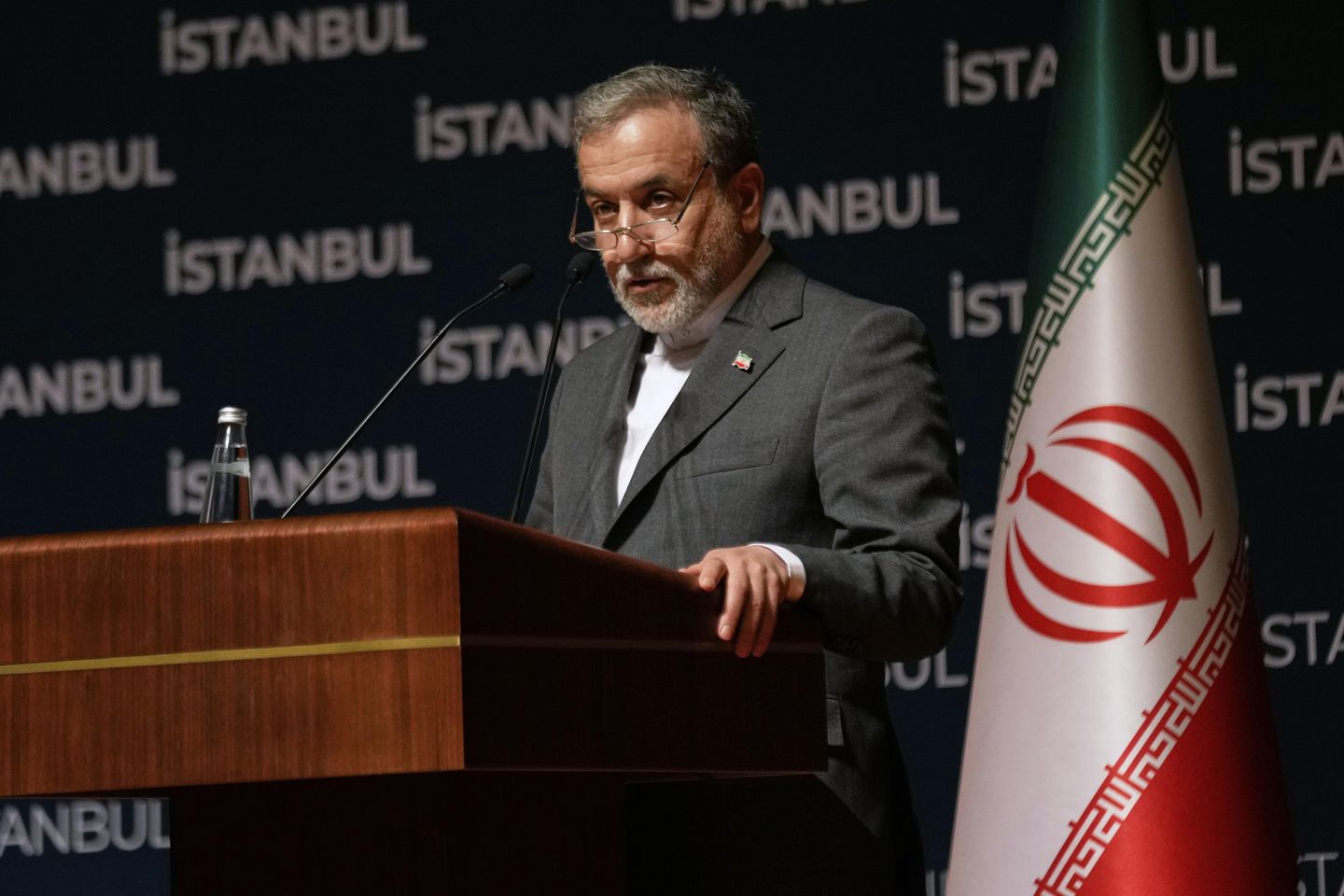
Diplomats from Iran and Europe arrived in Istanbul, Turkey, on Friday to discuss the future of Tehran’s uranium enrichment program and the possibility of renewed sanctions.
The negotiations mark Iran’s first diplomatic mission since its 12-day air war with Israel and the collapse of discussions with U.S. representatives. Iranian officials are joined in Istanbul by diplomats from Germany, France and the U.K, known collectively as the E3.
The E3 make up the three European signatories of 2015’s Joint Comprehensive Plan of Action, which removed some sanctions on Iran in exchange for limits on its nuclear program. The group has threatened to trigger the JCPOA’s “snapback” mechanism if Iran refuses to agree to more diplomatic talks and restart cooperation with the International Atomic Energy Agency by the end of August.
E3 diplomats also want Iran to address its stockpiles of heavily enriched uranium, which is close to weapons-grade.
If Iran refuses and the snapback measure is triggered, Tehran could face some of the harshest sanctions yet. The sanctions could exacerbate tensions in the region as Iran’s already fragile economy comes under further strain.
Iranian diplomats have also threatened to pull out of the Non-Proliferation Treaty if the mechanism is activated.
Iranian Foreign Ministry spokesperson Esmaeil Baqaei said ahead of the talks on Friday that the negotiations are an opportunity for Western leaders to revise their stance on nuclear enrichment in Iran. Additionally, he said that E3 leaders have no legal authority to trigger the snapback mechanism due to their failure to uphold their obligations under the JCPOA.
Iran signaled openness to negotiations earlier this week, with Deputy Foreign Minister Kazem Gharibabadi announcing that Iran would host a delegation from the IAEA to discuss a “new modality” between the agency and Tehran. He did not say if or when nuclear inspections would take place.
Notably, U.S. representatives will not be present at Friday’s talks, due to President Trump’s decision to pull the U.S. out of the JCPOA in 2018. Washington and Tehran had engaged in five rounds of nuclear negotiations earlier this year before Israel launched its attacks on Iran’s enrichment facilities, and the U.S. also bombed the facilities.
The State Department said the E3 meeting is a rare opportunity for Iran to join the international community and work toward peace.
“The ball is in their court. The Iranian leadership has a window of opportunity to choose a path of peace and prosperity for their people, and we are also ready to talk directly to the Iranians. However, we are also closely coordinated with our E3 partners,” said State Department spokesperson Tammy Bruce.
Tehran has remained reluctant to re-engage with Washington diplomatically after U.S. bombers carried out the targeted strikes against Iran’s enrichment sites. However, Mr. Gharibabadi laid out Iran’s conditions for restarting talks with the U.S. earlier this week.
“For entering negotiations, several key principles are important: gaining Iran’s trust, as Iran has no trust in the United States; not using negotiations as a platform for hidden agendas such as military action—although Iran will be fully prepared—respecting and recognizing Iran’s rights under the Non-Proliferation Treaty; including enrichment in accordance with Iran’s desired needs, and lifting sanctions,” the deputy foreign minister said Thursday.
Since the June war, Iran has become further entrenched on the issue of uranium enrichment. U.S. officials took a hard line against allowing Iran to continue enriching uranium at any purity level, which Tehran asserted went against its rights under the Nuclear Non-Proliferation Treaty.
While Iran has long maintained that its nuclear program is purely for peaceful and civilian purposes, international watchdogs have found that the Islamic republic’s enrichment is far higher than what would be necessary for civilian use.
Tehran ended cooperation with the IAEA earlier this month via a new law that forces outside inspectors to go through Iran’s Supreme National Security Council before it can operate in the country.










